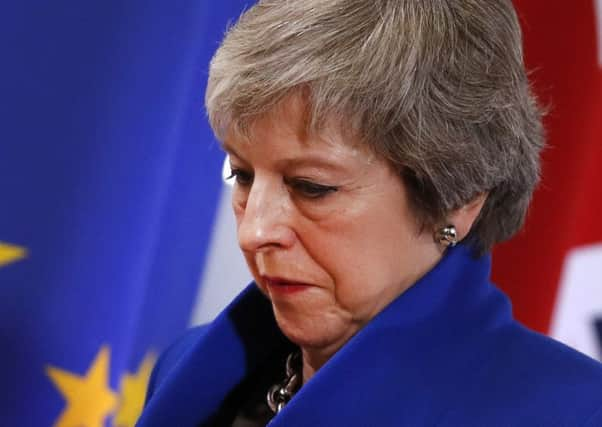Why Brexit adds to fears over global democracy '“ leader comment


Earlier this year, the UK was ranked as the country with the most ‘soft power’ in the world. The Portland Index decided institutions such as the BBC World Service, the British Council and our universities helped give the UK more cultural clout than any other nation.
However, Britain did have a “major weakness”, meaning it only narrowly edged out France for first place: uncertainty about Brexit.
Advertisement
Hide AdAdvertisement
Hide AdAs our politicians continued to do little to resolve that uncertainty – with Theresa May saying MPs will vote on her unaltered Brexit plan in about a month, as Jeremy Corbyn called for a vote of no confidence in her personally, rather than the Government itself – the House of Lords International Relations Committee published a report spelling out the diplomatic challenges ahead. It didn’t make for happy reading.
The committee described Trump’s controversial leadership as being “contrary to the interests of the UK”, citing a number of issues from Iran to steel tariffs and warning that if he was re-elected in 2020 there would be “longer lasting” damage. And Britain would increasingly need to work with undemocratic countries like China, whose “approach to its international role, and its impact on the rules-based international order” had to be balanced against its “growing economic significance”.
Add Russia’s “disinformation campaigns” and “hybrid warfare tactics” into the mix, and the Lords concluded it was “firmly in the UK’s national interest to maintain the strongest possible partnership on foreign and security policy with its like-minded European partners, both bilaterally and at an EU level, after Brexit”.
So, it appears that the UK will need to try to remain the very best of friends with our current partners, after what has been an at times bitter divorce process.
Brexit is often discussed in terms of pure economics or the effect on people in the UK. But when the world’s greatest ‘soft power’ changes so radically, other countries may experience at least some of the fallout, particularly amid the rise of dictatorships like China.
As Foreign Secretary Jeremy Hunt told the Lords committee: “As a new boy to the world of foreign affairs, it seems to me that the world order is changing very dramatically. We had a golden period for democratic values in the 30 years that followed the fall of the Berlin Wall in 1989 ... we are once again moving into a period in which we cannot have that complacency [about democracy] at all.”
